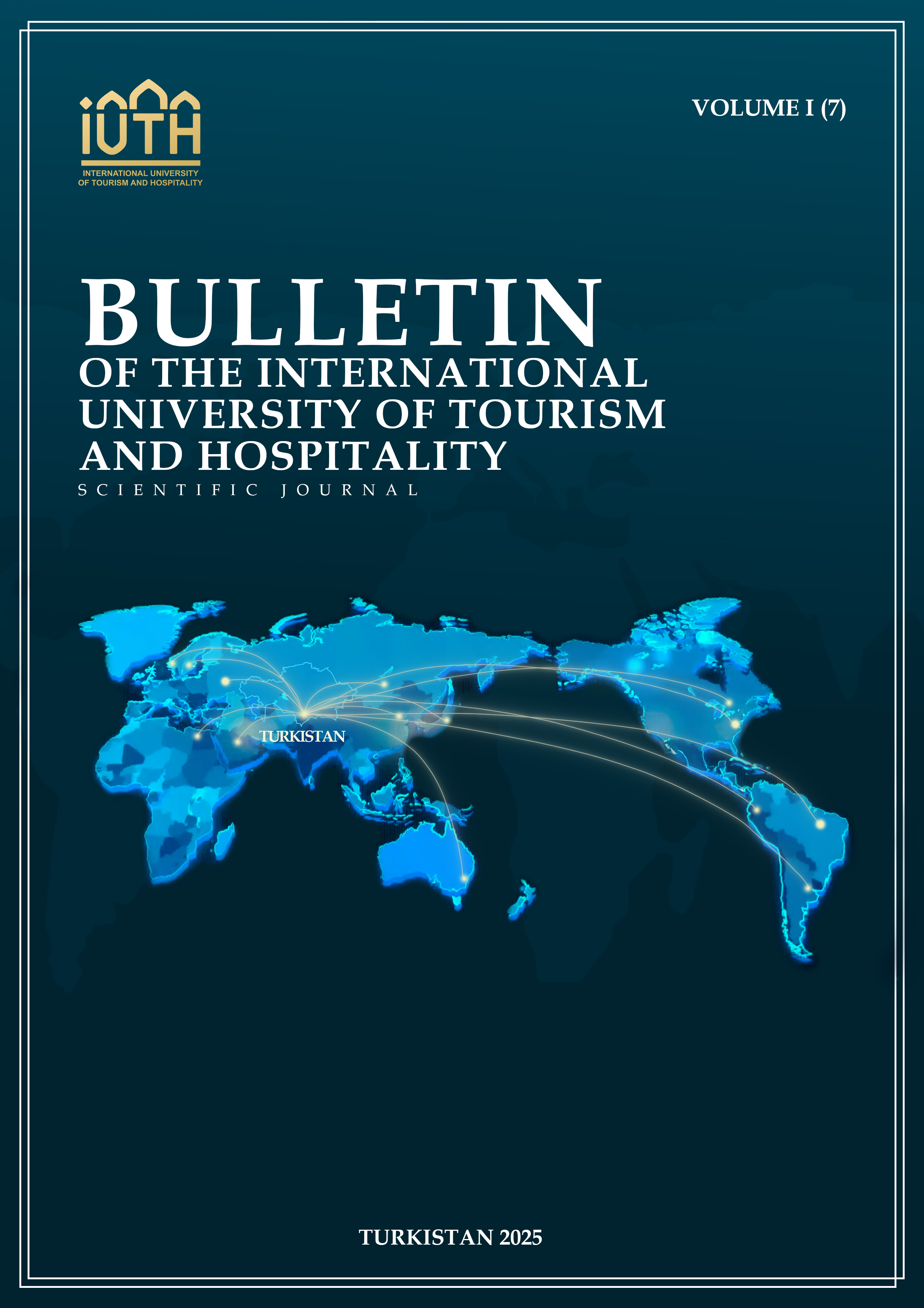SMALL TOWNS OF THE TURKESTAN REGION: AS A FACTOR OF SUSTAINABLE DEVELOPMENT OF TOURISM IN THE REGION
Keywords:
small towns, Turkestan region, sustainable tourism, economic enhancement, cultural identity.Abstract
This review article investigates the significance of small towns within the Turkestan region of Kazakhstan as pivotal catalysts for advancing sustainable tourism practices. The Turkestan region, located at the intersection of Central Asia's abundant historical and cultural legacy, presents distinctive prospects for tourism that can facilitate local economic enhancement, safeguard cultural identity, and ensure environmental conservation. By concentrating on the contributions of small towns to tourism development, the article scrutinizes how these communities can capitalize on their historical importance, natural landscapes, and indigenous traditions to formulate sustainable tourism frameworks. The article evaluates many challenges and opportunities these towns face in fostering tourism, encompassing the necessity for infrastructure enhancement, community involvement, and the safeguarding of cultural heritage. Through theoretical research, it is evident that small towns within the Turkestan region have the potential to function as sustainable tourism centers. This provides benefits for both the resident populations and the broader geographic area while promoting enduring economic viability and the conservation of cultural heritage. The results underscore the significance of cohesive strategies, encompassing ecotourism, heritage conservation, and local entrepreneurial activities, as fundamental elements of a sustainable tourism paradigm for small towns in this historically significant and culturally diverse region.


